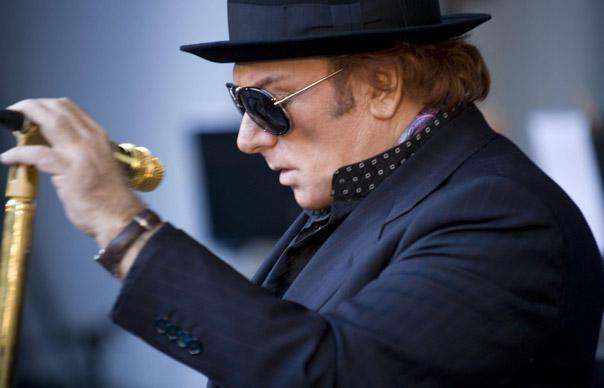COMMON ONE
MERCURY/WARNER BROS, 1980
The deepest excavation of Deep Van was recorded high in the French Alps. Meditative and otherworldly, it’s dominated by two improvised 15-minute tracks, “When Heart Is Open” and “Summertime In England”. The latter became the catalytic highlight of his stage show for the next decade.
JEF LABES (ARRANGER): Van and I used to ride around the hills in northern California, in the watershed of Mount Tamalpais, and he was very much reminded of Ireland, Scotland and the Lakes. He had a favourite place, the Pelican Inn, an English pub where he would stop and get tea, shepherd’s pie, bangers and mash. Even though he was living in California, he had a lot of that ancient Celtic-English stuff around him. It kept that spirit alive.
DAVID HAYES (BASS): We recorded in this unbelievable place, up above Nice in the Alps. We were all out of our element, which has a lot to do with how that album feels. The atmosphere… I don’t know how to put it. It was mystic and spooky at the same time. Van and I stayed in converted horse stables next to the studio, but he kept pretty much to himself. The spiritual stuff wasn’t overt. We knew we were experiencing that, but then we’d watch Fawlty Towers and goof off. We memorised every episode. Van was more a fan of Sergeant Bilko.
JOHN ALLAIR (PIANO, ORGAN): It was rarefied air, and he was really open to it. He wouldn’t talk about it, but you felt that vibe. Monastic, just like the album feels. He was seeing things! He was so quiet, man, he was really in that place. It wasn’t a people-pleasing album, it was his own personal statement of where he was at. He had a hard time naming it, I remember. He was asking everyone what to call it. We were booked for three weeks and we did it in a week. They ordered cartons of two-inch tape from Paris, and by the time it arrived, we were all done. We’d played a few gigs in California beforehand where we’d worked out “Satisfied”, and “Wild Honey” was a major production number, like Frank Sinatra. But, really, it was total freedom. On “When Heart Is Open” he did this primal groan while playing harmonica at the same time, and when that happened in fucking real time in the studio it was literally a hair-raising moment. It was wild, deep. It’s never been about chords with Van, it’s totally about feel. ESP.
PEE WEE ELLIS (HORNS): We went to have coffee down in the village and the drummer didn’t get back right away, so we did “When Heart Is Open” without him. I played flute, and I didn’t have any idea what was going to happen. It was all improvised. You just had to listen to the vibe. He didn’t explain. He never does! He was being influenced by a lot of things a lot of us didn’t understand.
MARK ISHAM (TRUMPET): He was being influenced by Eno and Miles Davis. He played In A Silent Way for us before “Summertime In England”, and the band were sophisticated enough to work out how to do that within Van’s vocabulary. That became the song in his shows for years, the ultimate mountain to climb. He was a voracious listener, studier and reader. We had long discussions about spiritual things, though I don’t think he was vocal about it in general. He was exploring different philosophies, self-improvement. He became very interested in ambient and New Age music, and Common One was the first push towards that: “What can I bring from that world into what I do?” A lot of New Age music lacks focus, but put Van and his magnificent poetry at the top of that pyramid and it’s quite something. A lot of those ideas were brilliant. It was a beautiful stage for Van to explore what he wanted to explore. I can still see him sitting silently at the Rhodes organ. You could tell something was just waiting to bubble out.
HAYES: [Co-producer] Henry Lewy was a character. On “Haunts Of Ancient Peace” he told Van, “You’ve got to enunciate ‘peace’. It sounds like ‘pee’!” We’d finish these incredible performances and Henry would be asleep. I couldn’t really figure out why he was there. The album was mastered at the wrong speed for the vinyl pressing. It was all a quarter tone slow, but I think they fixed it on the CD. That’s what you get for sleeping on the job!



